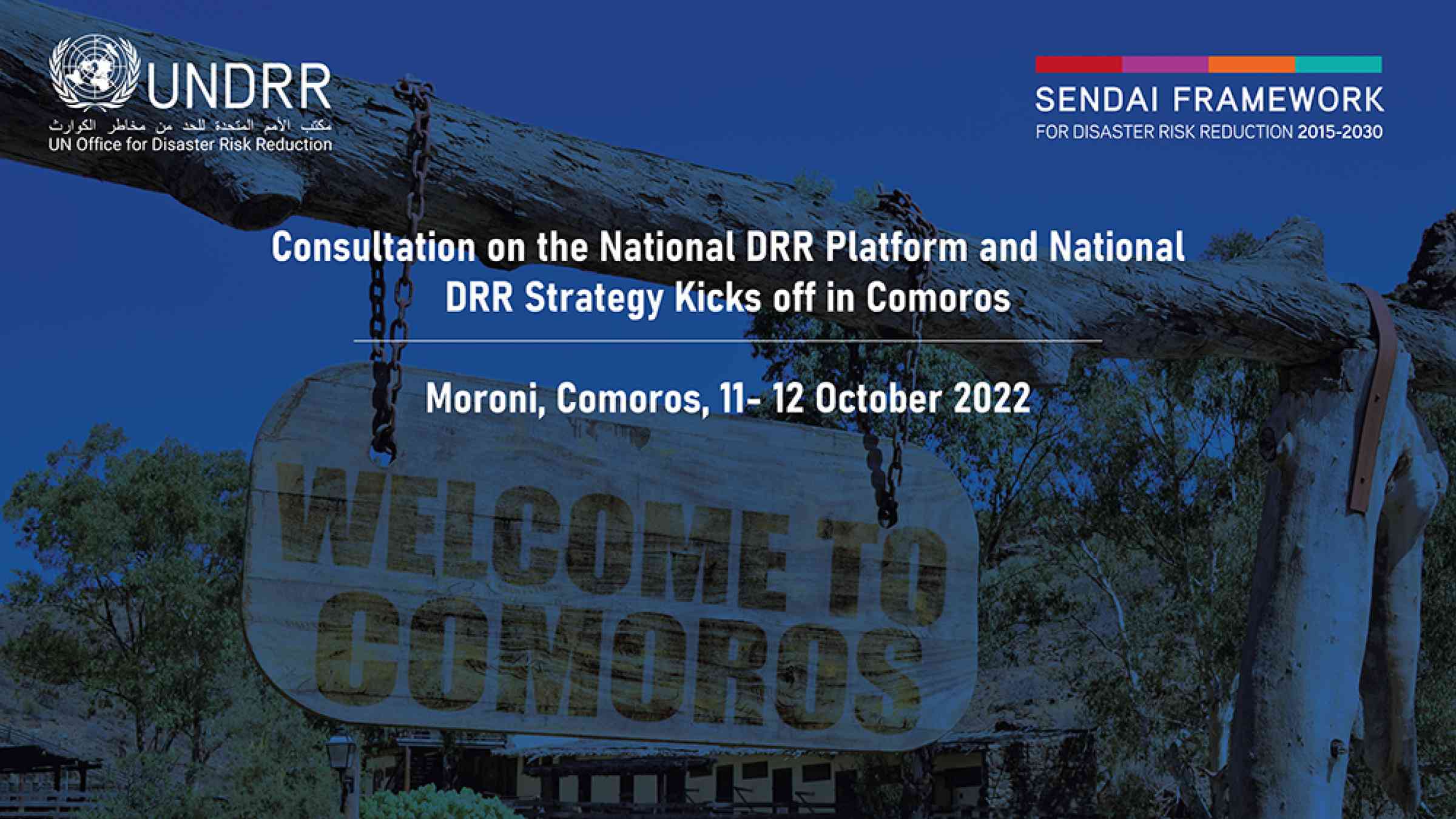The First Consultation Workshop on the National Disaster Risk Reduction Platform and National DRR Strategy in Comoros

- Arabic
- English
- French
The United Nations Office for Disaster Risk Reduction, Regional Office for Arab States is organizing the first consultation workshop on the National Disaster Risk Reduction Platform and National DRR Strategy in Comoros, in collaboration with the UN Country Team in Comoros and the General Directorate for Civil Security (DGSC).
This workshop is part of a series of planned consultation sessions to review the status and functioning of the National DRR Platform and to develop a National DRR Strategy coherent with the climate change and sustainable development policies in Comoros, as well as relevant regional and international policy frameworks.
Objectives
- Review the mandates and actors of the National Platform for Disaster Risk Prevention and Reduction
- Review the coordination mechanism for disaster risk reduction, including managing risk associated with man-made and natural hazards
- Draft a work plan for the development of the National Disaster Risk Reduction Strategy.
Background
Disaster Risk Reduction (DRR) is a cross-cutting complex humanitarian and development issue that requires an all-of-society, multi-stakeholder engagement to prevent and reduce disaster risk through the integrated implementation of inclusive economic, structural, legal, social, health, cultural, educational, environmental, technological, political and institutional measures.
The project is developed as part of UNDRR’s programme on Comprehensive Risk Management which aims to strengthen synergies between disaster risk reduction and climate change adaptation, identifying mutually beneficial opportunities across policies and programmes and enhancing the capacity of governments across-sectoral planning while ensuring vertical alignment. The programme also contributes to the achievement and implementation of Target E of the Sendai Framework.
A National Disaster Risk Reduction Strategy is essential for implementing and monitoring a country’s risk reduction priorities by setting implementation milestones, establishing key roles and responsibilities of government and non-government actors, identifying technical and financial resources, and developing/establishing monitoring, evaluation, and reporting mechanisms. A National Disaster Risk Reduction Platform is fundamental to coordinating and developing national activities; providing and mobilizing knowledge, skills, and resources required to mainstream DRR into development policies, planning, and programmes; supporting the local-level implementation of DRR; and being an advocate of DRR at different levels.